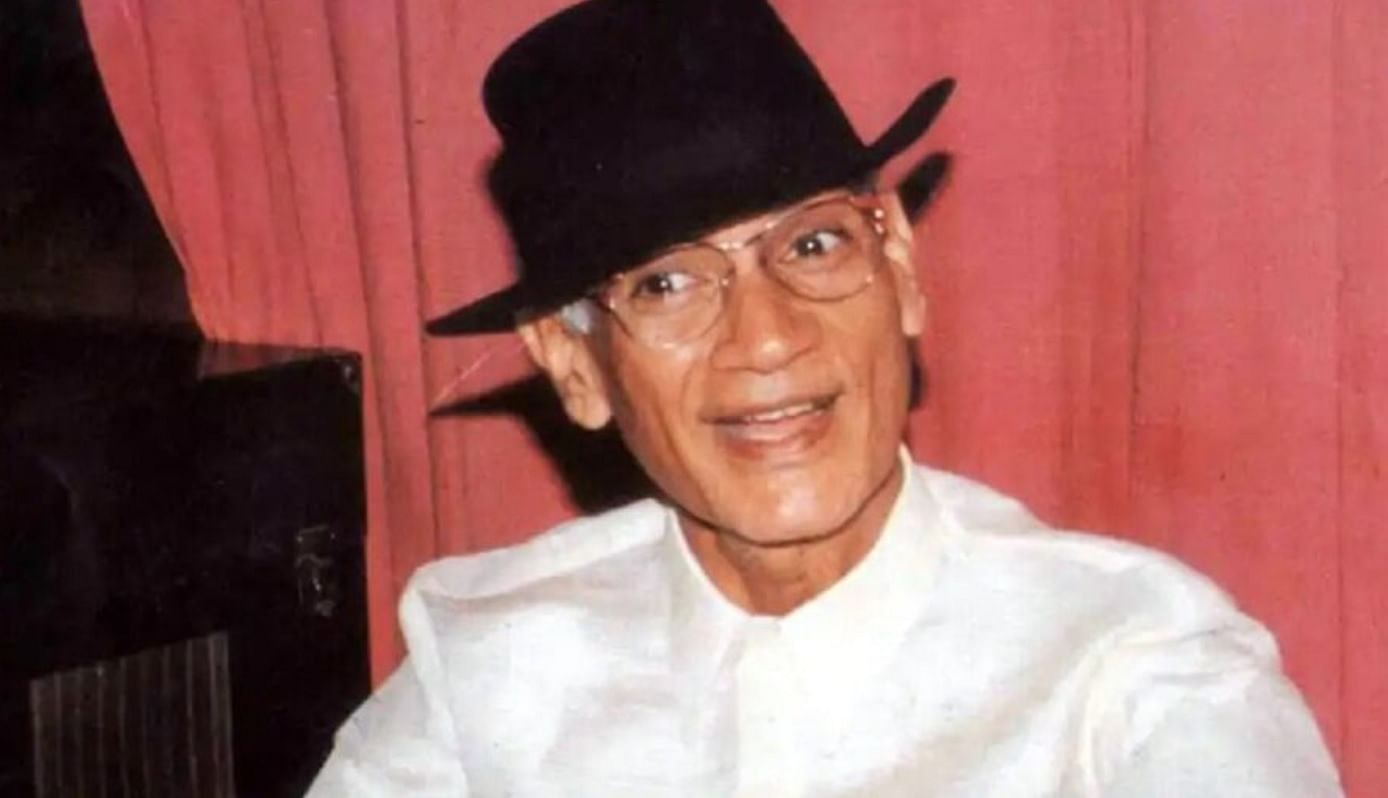
O P Nayyar invited divine wrath by hurting an angel-like Rafi.
-Composer Ravi Shankar Sharma, popularly known as Ravi.
Omkar Prasad Nayyar, known popularly as O P Nayyar, is known for the horse shoe-taps that lent his songs a trademark sound. To those who listened superficially, he sounded identical or repetitive. But that is a great misconception. In fact, if you listen to his repertoire, you find that only 25 per cent of his songs had the horseshoe tap, while the rest had a stamp of imperious musicality, as seen in Rafi numbers like ‘Tukde hain mere dil ke ‘ (Rafi, Mere Sanam, 1965), ‘ Aapke haseen rukh pe aaj naya noor ‘ (Baharein phir bhi aayengi, 1968) and ‘Hai duniya usi ki zamana usi ka ‘ (Kashmir ki Kali, Rafi, 1963).
Mohammad Rafi. Credit: www.mohdrafi.com
Celebrated as Asia’s ‘rhythm king’, OP played a long and successful innings, thanks to his personal rapport with Mohammad Rafi and Asha Bhonsle. An obstinate OP never used Lata’s voice and always preferred her younger sister as his creative muse. A genius, he had no grounding in classical music and could never learn to play even a harmonium. And he was a difficult man to work with. But he had a great equation with Rafi as both hailed from the same region and spoke Punjabi. In fact, because of Rafi and Guru Dutt, OP didn’t leave Bombay and stayed back to create some immortal tunes.
Goan film and music critic Crispin Lobo wrote in the now defunct Star & Style that OP’s great friends Rafi and Asha always egged him on to create tunes that were not run of the mill. Because of their constant motivation, he composed many gems. But not being a trained composer, he always suffered from self-doubt and was somewhat insecure among trained composers like Naushad Ali, S D Burman, Chitragupt, Roshan and Shankar-Jaikishan, to name just a few. He also isolated himself from them, though none disliked him.
In 1968, Joy Mukherjee directed and produced the film ‘Humsaya’. He was also the hero. He was extremely fond of Rafi and OP. He requested OP to compose the music. For the lyrics, he roped in Shevan Rizvi, who hadn’t got many opportunities. Shevan penned ‘Dil ki aawaaz bhi sun mere fasane pe na jaa’. Rafi was to sing it at Taddeo Film Studio, far from Bandra where Rafi lived. On that fateful day, the usually punctual Rafi reached late. OP asked him the reason. Being a simple man, Rafi said he had met Shankar-Jaikishan on the way. That annoyed OP no end and he said, ‘Mian, mujhe aapki zaroorat nahin hai ‘ (I don’t require you). Being decent and humble, Rafi just said, “Let’s record the number and after that we’ll part ways.” Recording studios were hired on an hourly basis and Rafi didn’t want Joy to suffer losses in his maiden venture. He recorded that magical number and said ‘Khuda hafiz’ to OP. They didn’t work together for four years.
In that period, Mukesh and Mahendra Kapoor sang OP’s compositions but the decline had started. He lost his special touch. Rafi and OP eventually patched up and created a few songs. Alas, all of them were forgettable because, as luck would have it, Rafi’s career saw a lull in the early ‘70s. That coincided with OP’s bad phase and his growing differences with Asha. The culmination came in the film ‘Praan Jaaye Par Vachan Na Jaaye’ (1974). Ironically, after recording Asha’s excellent ‘Chain se hum ko kabhi aapne jeene na diya’ they parted never to come together again.
Two heart-breaking episodes in quick succession dented OP’s confidence and enthusiasm for film music. He got disillusioned and started living in a faraway suburb of Bombay. When he passed away on Jan 28, 2007, he was in oblivion. Such is life. Let’s remember a maverick genius on his 95th birth anniversary falling on January 16.